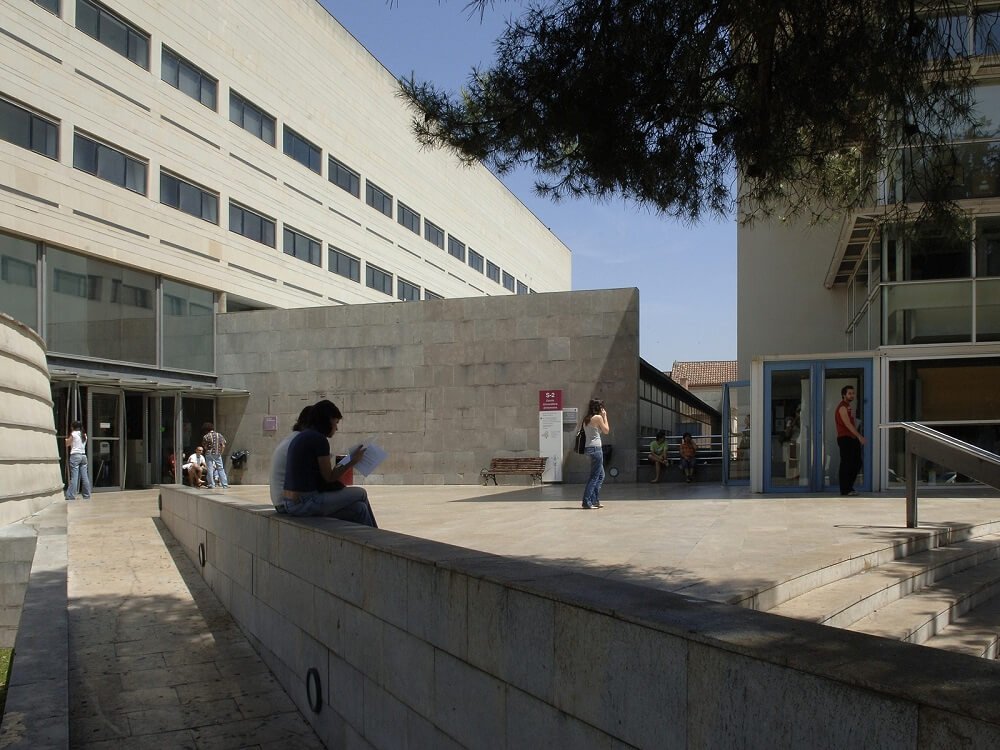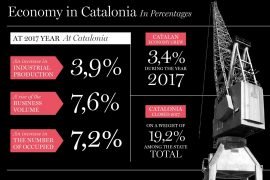[dropcap letter=”M”]
id-morning on a 23rd of April, the Rectorate Building of the University of Lleida should have, more or less, the same appearance as the mid-morning of the previous day, of the previous weeks or even years. What used to be the headquarters of cultural life in the city of Lleida has now become a hall of offices. Lleida has increased dramatically the number of its college facilities and, needless to say, the number of admissions of local and foreign students. It would appear that this fact would have boosted creativity –or at least spontaneity– in the field of arts, thinking and criticism. However, it has not turned out that way, but quite the opposite as the UdL facilities have become mere classrooms for future professionals with a higher concern for their own wallets. At this point, it is fair to say that the UdL is the rule, not the exception. The mottos of Catalan universities are revealed in their webpages or information pamphlets –subversive, if you ask me–: Choose the future, choose the UAB (UAB). Choose your way (UB). Create your own future (URV). An opportunity for the future (UdG). Values as a public service (UdL). Similar messages are reproduced in their European counterparts, and other centres from the rest of the world: Be 1 of the best (University of Helsinki, Finland). We think ahead and shape the future (Roskilde University, Denmark). Feel good about your future (BITS, Germany). Find your future inside (Abertay University, Scotland). Your future, your choice (University of Florida, USA). Where your future begins (IQRA University, Pakistan). Master your future (University of Utrecht, The Netherlands). Choisissez votre avenir nous vous accompagnons (Université Nice Sophia Antipolis, France). Meet your future (Università Degli Studi de Padova, Italy). Guardando al futuro (Università Politecnica Delle Marche, Italy). Your future Plan (University of Gloucestershire, England). Focus on your future (Durham University, England). Transform your future (University of Sheffield, England). Invest in your properly future (Investment Education Programme of Cambridge University, England). Building your future (Oxford University, England)… and so on and so forth.
It seems to me that universities are quite concerned about the future. In theory, this should be something positive were it not for the fact that, in general, this obsession seeks prestige of its own trademark, of its own teaching staff and research teams. Apart from a few exceptions, university furnishes society with accredited knowledge that, so far, has failed to prove its validity. Diplomas and certificates related to the arts and humanities are gradually losing recognition. Those related to communication end up subdued to the control of large corporations. The scientific and technological fields live, mostly, on fostering consumption and drugs, and promoting space conquest and war.
On 20th of April, the Catalan Agency of Quality of the Catalan University System released a report of employability for master graduates between 2011-2012 and 2012-2013. The main conclusions reached point to the fact that the number of master courses has gone from 1 for every 3 graduates to 1 for every 2. Each year there are, only in Catalonia, as many as 34,000 graduates, 15,000 master graduates and 2,500 Phd doctorates. Pure madness. The report also boasts that 9 out of 10 master graduates are now employed. The report finally concludes that the degree is, therefore, a key element in employability. In a nutshell, one enters university as you could go to a Trade School, which –i.e. learning a trade in a Trade School–, I find, is equally praiseworthy as going to university. But then again, instead of being obsessed with employability, university should offer excellence for those who prove their own worth, readiness and talent to defend a sustainable and conscious future. Because what deserves admiration is not the fact that society is in the hands of an engineer or an architect on account of them being in possession of a university degree, supposedly a higher achievement than that of a painter, a sculptor, a poet, a musician, a photographer, a choreographer, an actor… regardless of how self-educated the latter may be. I am appalled that university has become a factory of future workers. In fact, if the first step of our future continues in the hands of university as it is today, I am afraid we are in for a serious problem. The university acts as a business whose enrolees become both clients and workers at the same time. They are themselves a source of resources, together with public and private resources, that allow to sustain a huge teaching and admin structure. At the same time, these enrolees are subjected to a performance that is both extraordinary and useless for its own and the collective welfare. The university encourages a frenzied pursuit that subjects individuals to stress, problems, tension, work dependency, capital, ambition and power. People in search of their own fulfilment through property, material wealth, bank accounts, prestige and leadership. This is the road to internal and external conflicts, the opposite direction to achieving happiness.


















